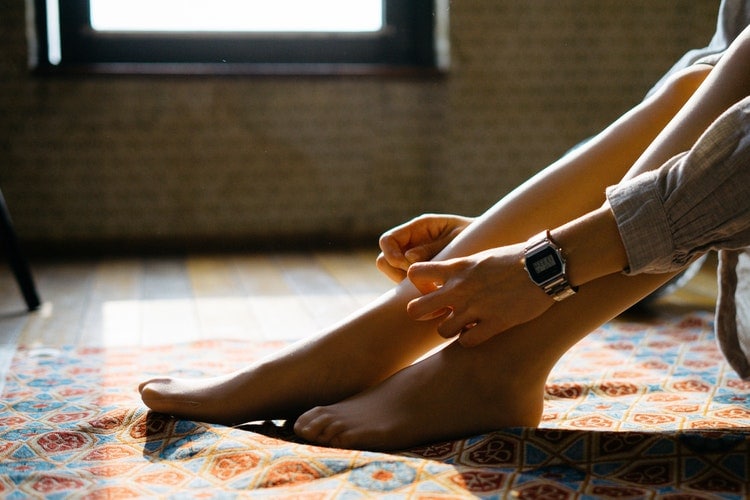
Are your legs feeling tired, heavy, or itchy? Are you noticing that veins in your leg have grown more visible? It may be time to call a specialist. Vein problems are commonly considered to be a cosmetic concern due to the clear appearance of the veins under the skin. However, your vein health impacts more than your leg’s appearance. The vein specialists in Orlando at Central Florida Vein & Vascular Center have dedicated their lives to ensuring patients are able to keep their veins in the best state possible. How do you know it’s time to call a specialist for a consultation? Let’s find out. Here are a few telltale signs that you should schedule a consultation today.
Before addressing the telltale signs that you should see a specialist, let’s talk about vein health. Your veins are responsible for circulating blood throughout the body. Just like any other part of the body, veins can weaken over time. This most commonly happens in the legs. Veins in your legs have to work harder to push blood upwards against gravity. If they are damaged or weakened, blood can pool in the vein and create a varicose vein.
We don’t mean leg fatigue after a long walk or a good workout. We’re referring to legs that feel exhausted at the end of most days. You may feel exhausted or drained at the end of the day, and that’s okay — we all get tired. But your legs should not consistently feel tired. This can be a sign of poor vein health.
Weak legs after standing for long periods of time can also be a sign that something isn’t quite right with your veins. It isn’t recommended to stand for long periods of time to begin with — this can cause damage to the veins. Either way, leg weakness after standing is still something that may prompt a trip to the specialist.
Can varicose veins impact the skin? They certainly can! When blood pools in the vein, the extra pressure prevents your skin from getting the nutrition it needs to stay healthy. You may notice that your skin is dry or itchy, discolored, or you may even notice a rash by the ankle. At worst, the varicose vein could also lead to an ulcer.
Don’t worry — the skin damage can often be reversed once the varicose vein is treated. And treatment is quick and minimally invasive, so you can get back to having legs without rashes or visible veins.
Chronic pain can get to a point where even the smallest things feel difficult. There’s no need to live with painful varicose veins. You can talk to a specialist, who will assess your vein health and create a treatment plan that will help minimize your pain. This may be as simple as sending you home with compression socks to treat symptoms. Or, you may be scheduled for a minimally-invasive treatment like Endovenous Laser Treatment or Sclerotherapy. Either way, your treatment plan should get you back to enjoying life — without pain.
Pregnancy is not kind to your vein health for several reasons: hormones released during the first trimester weaken the veins, blood increases in the body, and the growing uterus puts additional pressure on the veins. Most women experience varicose veins during their first pregnancy, but few see a specialist for treatment. This leads to worse vein health during consecutive pregnancies. If you’ve been pregnant, it may be beneficial to have a specialist check your vein health.
Varicose veins are most known by their appearance. The affected vein can appear to be bulging under the skin in a branch-like pattern. The veins can also appear to be a dark blue or purple in corner. Schedule a consultation with a specialist if you’re experiencing these symptoms, even if you don’t have any pain. Treating varicose veins early can prevent you from developing worse vein-related issues later on. And, after treatment, you won’t have to worry about those pesky, visible veins anymore.
When left untreated, varicose veins can leave you at a higher risk of developing a blood clot. This is something to take care of as soon as you possibly can. A blood clot can potentially travel through the veins and become stuck in the lungs. This is called Deep Vein Thrombosis and can be deadly. So if you notice a tender, warm lump in your leg, it’s best to call a specialist for a consultation, just to be on the safe side.
Have you noticed that your legs seem swollen when you go to sleep, but they’ve returned to normal when you get up in the morning? This isn’t a guaranteed symptom of varicose veins, although vein issues can cause this. If your swelling is combined with throbbing or cramping in the leg, go ahead and schedule that consultation. Your specialist will be able to tell if the culprit is your vein health.
Are you personally experiencing one or more of these symptoms? At this point, you know what to do: reach out to a specialist. The painful days of vein stripping are long gone and have been replaced with minimally-invasive treatments that are quicker and easier than you may think.
The vein specialists in Orlando at Central Florida Vein & Vascular Center are here to answer any questions you may have, and help create a treatment plan that will be best for your veins. You can schedule a consultation today by calling us at 407-545-3385 or 352-658-5547 today. And if you’d like to learn more about varicose veins and treatment options that may be available, you can look through our blog. We post regular, useful information to help you stay educated about your vein health.